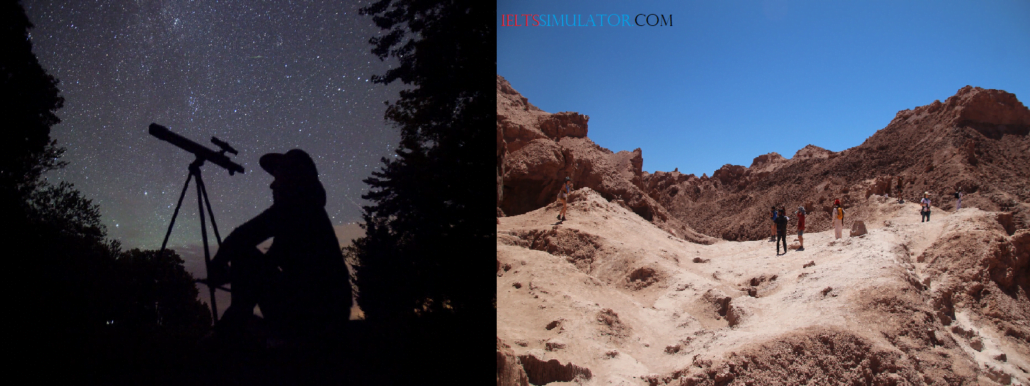
JOB INQUIRY
Attempt full listening test…
SALLY: Did they measure the distance between them?
PROFESSOR: No Sally I’m afraid that’s incorrect. Mike, do you know the answer?
MIKE: Historians used to think that the ancient Africans recognized stars by observing the manner in which they affected each other, but further research showed that they used the Q21 location of the stars in order to distinguish one from the other.
PROFESSOR: Well done Mike, very good. Can either of you tell me anything about the Wayaka people?
SALLY: They have a lot of money but do not trust banks to keep it safe. They believe that it’s in their best interest to help themselves not assist others instead the tribe looks after their own finances and generate income from Q22 lending money to others in low-interest loans.
PROFESSOR: What problems do the Africans suffer from?
MIKE: They used to suffer greatly from drought however they have now developed clever ways of overcoming it by moving to higher land. There are however far more predators in these mountainous areas, so it is vital that the Africans learn how to Q23 protect themselves in this new environment.
SALLY: Yes, that’s right, also compared to more developed countries the Africans are less concerned with their international status, which I find interesting.
PROFESSOR: Very good. What else are the local people concerned with?
MIKE: Unlike other poorer tribes, they have plenty of nourishing food. And they are able to afford vaccines that prevent them from catching diseases.
SALLY: They historically lived in the west of Africa, although later they were chased off their land by other tribes competing for food and water. It is their hope that they will eventually be able to Q24 return to their original homeland.
PROFESSOR: Why has the financial condition of the African people deteriorated?
MIKE: Despite their modern transportation system, they find it very difficult to trade because their tools are not sophisticated enough to mine minerals from the land. They have permission to engage in these commercial activities. So once they have the right tools they will be able to develop a very large income from trade.
SALLY: Do you think that this new income will stop Africans suffering from starvation in the near future?
MIKE: Unfortunately, I don’t think so, they should be able to start trading next year but they will only have enough income to start growing sufficient food and crops to support the local people Q26 in the long term future.
PROFESSOR: Yes, that’s correct.
SALLY: There are many charities from developed countries that are helping to ship food to African countries in order to feed the starving, unfortunately, it is difficult to transport a lot of food to the right places, but Africans are very good at Q27 sharing and making sure that everyone gets something to eat.
MIKE: African governments are also starting to pay more attention to the needs of their people. They have been directing a lot of money to help build schools in the more impoverished villages, as a part of their new Q28 education plan which is fantastic. This means that hopefully, all African children will be able to attend school daily without having to walk long distances.
PROFESSOR: Yes absolutely. Do you remember any other information from your class notes?
SALLY: Historically the tribes in Africa often used to migrate across the country in search of food and water. They would live in tents that were easy to dismantle and transport to other locations.
MIKE: That’s true. But now they are being encouraged to Q29 settle down in one area, so they can establish colonies and build facilities for themselves such as houses and schools. Some villages have even developed specific customs, for example, the Wayaka people consider it impolite if you do not bring Q30 gifts when visiting someone.
PROFESSOR: Bravo you’ve both contributed fantastic points to our conversation. That concludes our session for today I’ll see you next week.